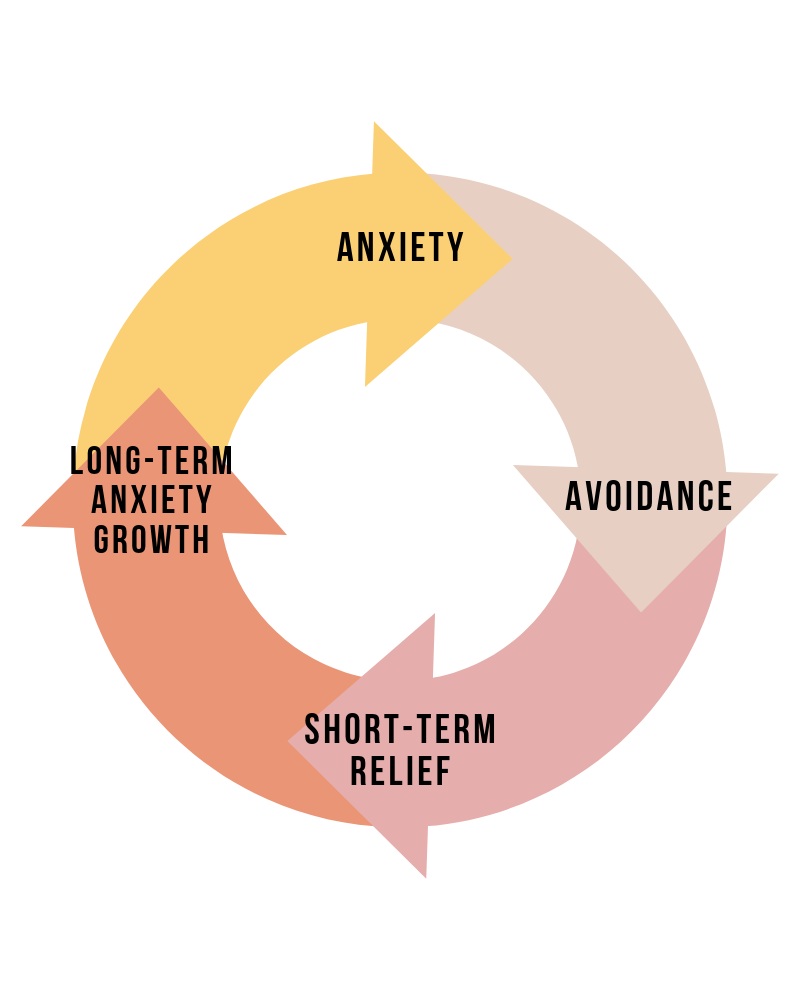Anxiety: Understanding the Vicious Cycle
One of the first steps in learning how to cope with and heal from anxiety is identifying the cycle of anxiety that takes place in your day to day life. Understanding the anxiety cycle will help to…
Identify the various triggers of your anxiety
Recognize the unhealthy coping patterns you have developed in order to avoid feeling anxious
Realize that avoiding the triggers to your anxiety may provide temporary relief
Remember that short-term relief doesn’t lead to long-term growth
The Anxiety Cycle
Anxiety
An anxiety provoking situation leads to uncomfortable symptoms like…
Worry
Fear
A racing heart
Sweaty palms
Feelings of being overwhelmed
Avoidance
These uncomfortable symptoms are controlled by avoiding the anxiety-producing situation. Examples of avoidance include:
Skipping class to avoid giving a presentation
Using drugs or alcohol to numb feelings
Procrastinating on challenging tasks
Avoiding confrontation in close relationships
Short-Term Relief
Avoiding an anxiety-provoking situation will provide temporary relief from anxious feelings. You get immediate gratification and relief by avoiding your worst fears!
Long-Term Anxiety Growth
Avoiding situations that produce feelings of anxiousness actually INCREASES your anxiety in the long run. When you begin to avoid negative emotions associated with anxiety, you decrease your ability to tolerate distress or risk, you build negative psychological associations, and your brain latches onto unconscious sensory triggers that become associated with anxiety-provoking situations. In short, the fear that initially led to avoidance worsens and the brain learns that when the anxiety-producing situation is avoided, the symptoms go away. As a result, the symptoms of anxiety will be worse the next time and avoidance is more likely. This repetitive cycle keeps you stuck in your anxiety! You end up sabotaging yourself, all in the name of not having to experience uncomfortable emotions that come from your anxiety.
Apply this to your own life. Can you identify your own cycle of anxiety? How do you typically avoid your anxious feelings? Identifying how your own experience specifically fits into the cycle is one of the first steps to experiencing freedom from anxiety! Interested in learning more about counseling treatment for anxiety? Schedule an appointment today.

